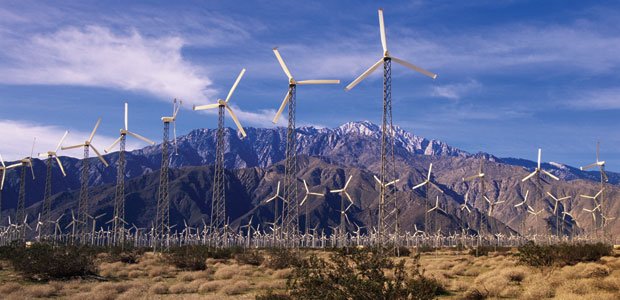Advertisement
Fuel for Thought
Renewable fuels for cars and homes

It can be made out of food crops or the oil that cooked your lunch. It can power cars and cut pollution, and no one has to go to war to get it. It’s called “biofuel.”
Biofuels are renewable liquid fuels made from vegetable oils, recycled kitchen grease, or other waste oil products. Biofuels can be used in any gas car; “biodiesel” is a biofuel that can only be used in diesel engines.
Compared to gasoline or pure diesel, biofuels produce less carbon dioxide (C02), the main chemical responsible for global warming.
A renewable Fuel Near You
In Canada a biofuel that any gas engine can use and that’s available at about 1,000 service stations, is called E10. The “E” is for ethanol, an alcohol-based fuel made by fermenting corn; “10” means the blend is 10-percent ethanol and 90-percent gasoline. Because of its high oxygen content, E10 helps your car’s engine burn cleaner, reducing CO2 emissions by about 4 percent.
Four percent may not seem like much, but according to figures provided by Earth Trend and the Canadian Automobile Association, if the average driver of a passenger vehicle in Canada used E10, she would reduce her personal annual CO2 pollution by about 144 kilograms or 316 pounds!
Just as importantly, E10 helps conserve nonrenewable fossil fuels.
The Buzz on Biodiesel
When Rudolf Diesel introduced his diesel engine at the Paris Exposition in 1900, he ran it on 100-percent peanut oil. Things have come full circle with biodiesel.
The pleasant, telltale smell of french fries trails after a biodiesel car or truck, but its best feature is invisible to our senses: it can dramatically reduce particulate (soot) emissions and CO2.
A Clean Burn
Diesel engines, designed to burn oilier diesel fuel, are ideal for handling higher blends of biodiesel made from canola, soy, or other plants that tend to be too oily for a gasoline engine. A B100 blend–100 percent vegetable or other biomass oil and no petro diesel–reduces carbon dioxide by 73 percent, hydrocarbons by 56 percent, carbon monoxide by 43 percent, and particulate matter by 55 percent compared to gasoline, according to the US Department of Energy.
A “B20” blend burns about 20 percent cleaner than gasoline cars.
But is biodiesel good for your car’s diesel engine? And where can you buy it?
Coast-to-Coast
Last summer Johannes Wheeldon, a PhD student at Simon Fraser University in Burnaby, BC, drove his Volkswagen Jetta from Halifax to Vancouver to raise awareness about renewable fuels.
“Apart from chipping my windshield in Thunder Bay,” he says, “I had absolutely no problem running my car on biodiesel across Canada.”
Johannes bought the fuel at retail outlets and community-run co-ops along the way, and then promoted the resources on his website, www.biodieselsolutions.ca.
Wheeldon estimates he gets 750 kilometres to a tank in city driving and about 1,000 on the highway. He refuels once a month at the Vancouver Biodiesel Co-op. “Biodiesel costs about the same as petro diesel at the pump,” says Wheeldon, “but you get better mileage.” Biodiesel also reduces friction between engine parts, cutting down on wear and tear.
More Than Cars
“One of the best things about biodiesel,” Wheeldon says, “is that it can be used in all the biggest polluting industries in Canada. We need to target our main polluters–the transportation sector, agriculture, and home heating. We heat some of our homes with filthy fuel! We could use biodiesel instead of petro diesel at relatively the same cost. We also need to provide tax breaks to people who are using greener fuels.”
Energy Balancing
Biofuels have their critics. Energy Probe has come down hard against them because it says it takes too much fossil fuel to produce and transport them. But Wheeldon and others in the biodiesel movement, like Lyle Estill, author of Biodiesel Power (New Society Publishers, 2005), ask us to question the assumptions behind this criticism.
If we think about biofuel as what we’re throwing away right now, they say, we’ll realize biofuels actually recapture energy. Right now most of the waste kitchen grease and other waste oils are tossed into landfills or shipped overseas. We can easily reduce the fossil fuel energy we use to harvest and transport biofuel crops simply by using biodiesel in tractors and in trucks.
The Post-Oil Era
The days of fossil fuels are numbered. Some biofuels can prolong the supply, and slow climate change, but the B100 blends that use no petroleum at all truly inspire us and can fuel our thoughts and our actions.
“Once people realize they can power their lives using vegetable oil,” Johannes Wheeldon says, “I’m hoping the paradigm will shift and we’ll start thinking about how we can capture some of the solar engine on our houses or use a wind turbine.”




